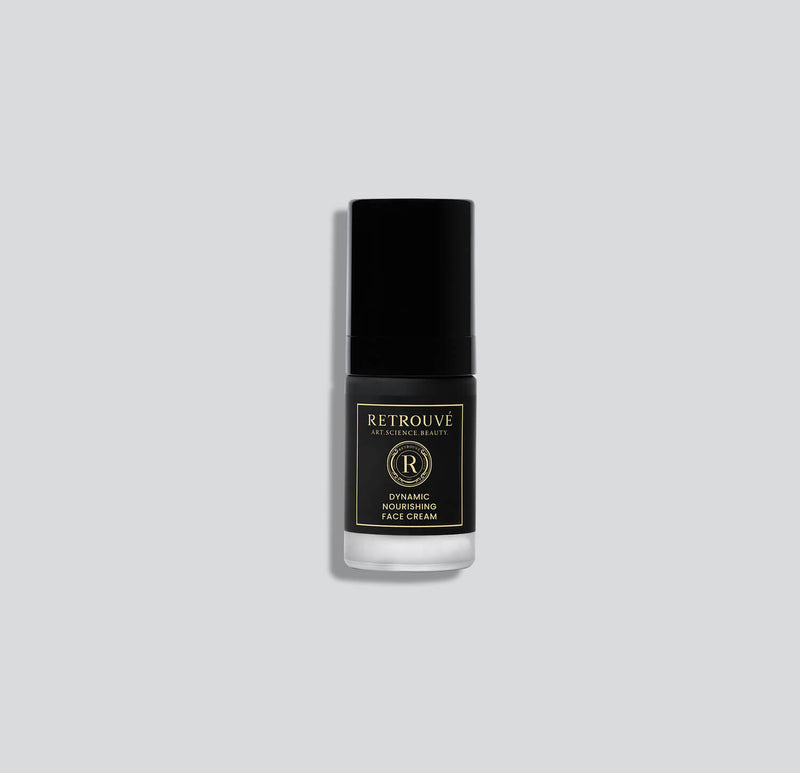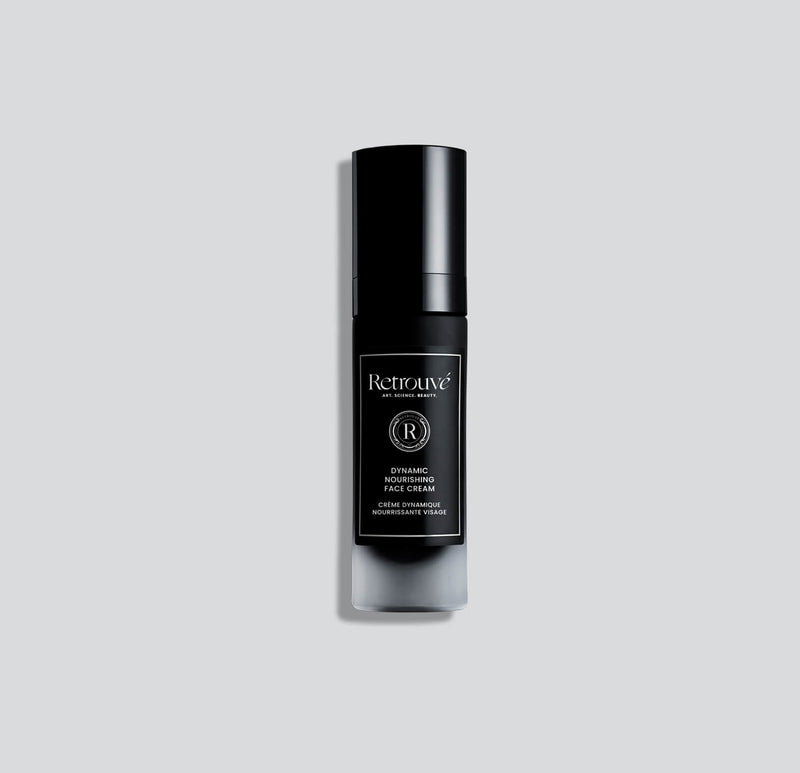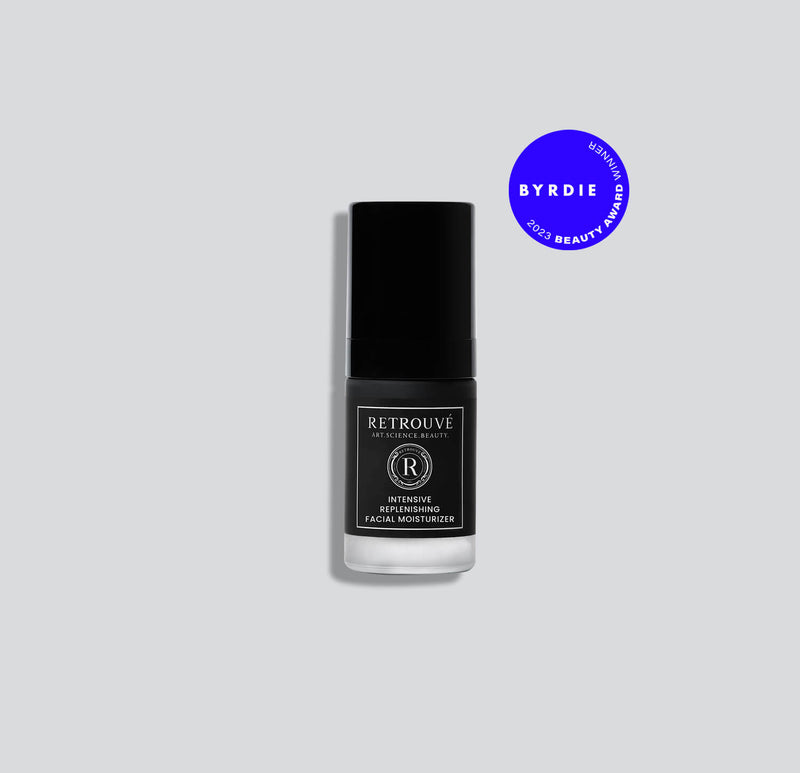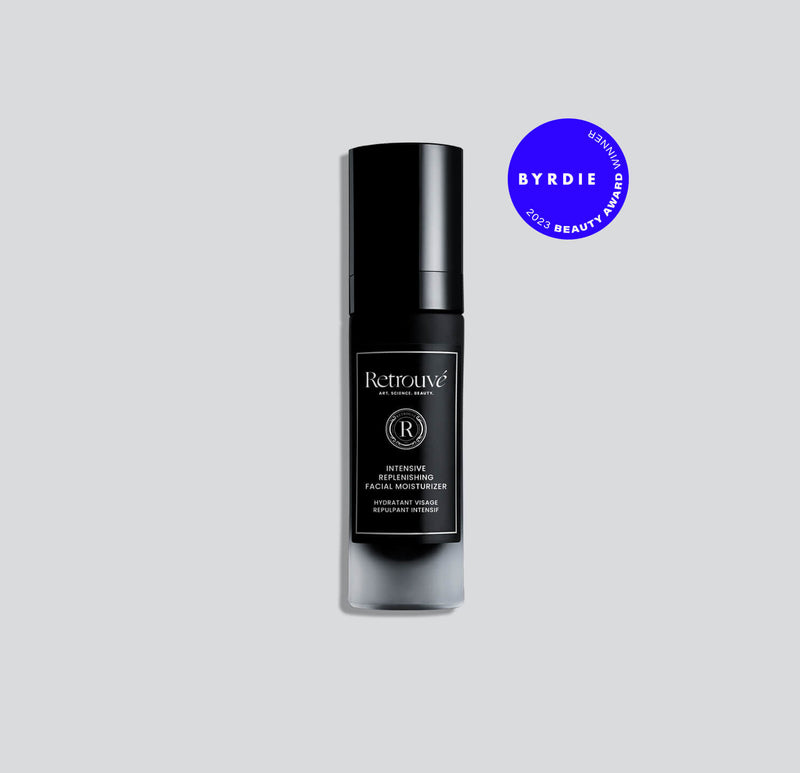The key ingredients in our luxurious and highly effective formulations are meticulously sourced and carefully selected for their extraordinary benefits to the skin. One of the exceptional, powerhouse ingredients that we use in several of our celebrated moisturizers is Vitamin A. In our formulations, we use a form of it called Retinyl Palmitate.
What is Retinyl Palmitate?
Retinyl palmitate is one member of the class of molecules known as retinoids and a derivative of Vitamin A. It has known anti-inflammatory properties and is a potent antioxidant. Retinyl palmitate converts to retinol when absorbed by the skin and promotes skin-cell turnover as well as refines skin texture and increases the luminosity of the skin.
What is the difference between Retinol and Retinyl Palmitate?
Retinol is a member of the class of molecules composing vitamin A. Retinyl palmitate is a chemical substance that is called vitamin A palmitate.
The term retinoid refers to a group of compounds that make up vitamin A. This means that they possess structural or functional similarities to vitamin A. Retinoids can be natural or synthetic and include many types and forms, such as retinol, retinal, and retinyl esters.
Retinyl Palmitate is a derivative of Vitamin A and is more stable than retinol. Retinyl Palmitate is more gentle and less irritating than retinol and is therefore usually a better option for more sensitive skin types and tends to be more easily tolerated. Retinyl Palmitate results in similar benefits to retinol but may take a bit more time to show its effect due to its milder nature.
What is the difference between a prescription and cosmetic retinol?
Retinoids are a common active ingredient in many dermatological medications and cosmeceuticals due to their positive effects on the skin and its appearance.
People can buy weaker forms of retinoids OTC to help treat mild acne or reduce the signs of aging, such as the appearance of fine lines and wrinkles. Stronger forms are only available through a doctor’s prescription and typically treat more severe skin conditions, such as psoriasis and cystic acne.
While some may see anti-aging results potentially more quickly with prescription-strength retinoids such as Retin-A, Tretinoin, or Tazorac, these topical medications are more irritating. They are more commonly the cause of the dryness and redness many associate with vitamin A- containing products. An over-the-counter retinol, since it is less potent, is less irritating, but it may take longer to achieve the desired effect.
Sun protection should always be used with these products, including a broad-spectrum SPF of 30+ and other sun-protection measures such as wearing a hat and sunglasses during daylight hours. (See our sunscreen suggestions here.)
Why use a retinoid (or other vitamin A-derived containing product)?
Retinoids have been proven to be one of the most effective ingredients currently available in improving the appearance of aging skin with its ability to boost collagen, minimize the appearance of fine lines and wrinkles and improve skin texture. It is for these reasons that many experts in the beauty industry recommend the use of retinoids.
Retinoids have wide use in dermatologic topical treatment also. The most common use is to treat mild to moderate acne by opening blocked sebaceous glands, diminishing pores, and by being anti-inflammatory.
The cosmetic benefits of increasing procollagen production and reducing inflammation can help diminish wrinkles and other signs of premature aging, including that due to sun damage.
Usage
Many experts recommend gradually phasing in the use of retinoid products over a few weeks due to their strength, or to use them only a few times a week instead of daily to help the skin acclimate to them or if one has more sensitive skin. We also do not recommend using them on sunburnt, chapped, open or wounded skin without a doctor’s specific advisement.
Although their positive effect on the skin can be profound, performing a patch test before using retinoids is encouraged, particularly if one has sensitive skin. See patch test info here.
Cautions:
While there are many other medical uses of Vitamin A, both internally and externally, one should always consult a physician before use if pregnant or under a doctor’s care for any medical conditions. Some Retinoid products can have strong effects on the skin and therefore should not be used together, in multiples or layered without a physician’s approval and guidance as well. If multiple sources of Vitamin A are used and/or ingested, including other cosmetics with vitamin A-derived ingredients, it is also advised to consult a physician to monitor overall Vitamin A intake.
Vitamin A products can make you more sun-sensitive, so it is advisable to utilize them in conjunction with broad-spectrum daily sunscreen use of SPF 30+. UV rays can decrease the efficacy of topically applied retinoid products, so they are also more effective when applied in the evening.
Thanks!
You’ll receive an email when it’s back.
featured products
related
Ingredients
White Tea Extract—Why We Chose This Anti-Inflammatory Anti-Aging Hero
Because white tea has proven anti-inflammatory and antioxidant benefits in skincare, it’s a key ingredient in Retrouvé skincare. We explain why we chose...
ReadIngredients
Ingredient Spotlight: The Power of Vitamin C
The distinct multi-purpose nature of Vitamin C makes this antioxidant a miraculous ingredient for the skin.
ReadIngredients
POMEGRANATE, A POWERFUL ANTIOXIDANT
Pomegranate has been a proven antioxidant essential to your skin. Its glowing benefits can be found in many of Retrouvé's products that you can can sh...
ReadIngredients
The Natural Super Hydrating Benefits of Kalahari Melon Oil
For over 4,000 years, the indigenous San people in southern Africa have revered the Kalahari Melon as a vital source of sustenance and hydration and bot...
ReadIngredients
POMEGRANATE, A POWERFUL ANTIOXIDANT
Pomegranate has been a proven antioxidant essential to your skin. Its glowing benefits can be found in many of Retrouvé's products that you can can sh...
ReadIngredients
White Tea Extract—Why We Chose This Anti-Inflammatory Anti-Aging Hero
Because white tea has proven anti-inflammatory and antioxidant benefits in skincare, it’s a key ingredient in Retrouvé skincare. We explain why we chose...
Read











